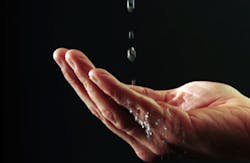WASHINGTON — NACWA applauds its members leading and/or participating as key partners in awarded projects in USDA’s Regional Conservation Partnership Program (RCPP), according to a press release.
The city of Cedar Rapids is the leading partner for the Middle Cedar Partnership Project focusing on working with local conservation partners, landowners and farmers to install best management projects to help improve the Cedar River Watershed’s soil health, water quantity and water quality, stated the release.
The release reported that NACWA, in addition to Cedar Rapids, also applauds the Madison Metropolitan Sewage District — to be the first in the nation to test the Watershed Adaptive Management Program, and a key partner for the Yahara Watershed Pilot project led by the Dane County Land and Water Resources Department; the city of Columbus, Ohio — a participating partner in a watershed project within the Upper Big Walnut Creek Watershed; and Baltimore, Maryland — a participating partner in the Mason-Dixon Working Lands Partnership in the Chesapeake Bay Watershed.
Under the 2014 Farm Bill, the RCPP was established “to encourage partnerships between agricultural producers and other entities, including municipalities and wastewater authorities, to tackle water quality challenges and other natural resource problems,” noted the release.
"NACWA members recognize that if we are to achieve the goals of the Clean Water Act, we need the agricultural sector to undertake significant conservation efforts on the farm,” said NACWA Executive Director Ken Kirk. “We have been a strong supporter of the RCPP from the beginning because we recognize that collaborating with agricultural partners is critical to finding innovative ways to address water quality problems effectively and in a more holistic manner. NACWA members have been leading the charge to engage in new partnerships to improve water quality and the RCPP awards highlight and support the great work that these agencies are doing."
